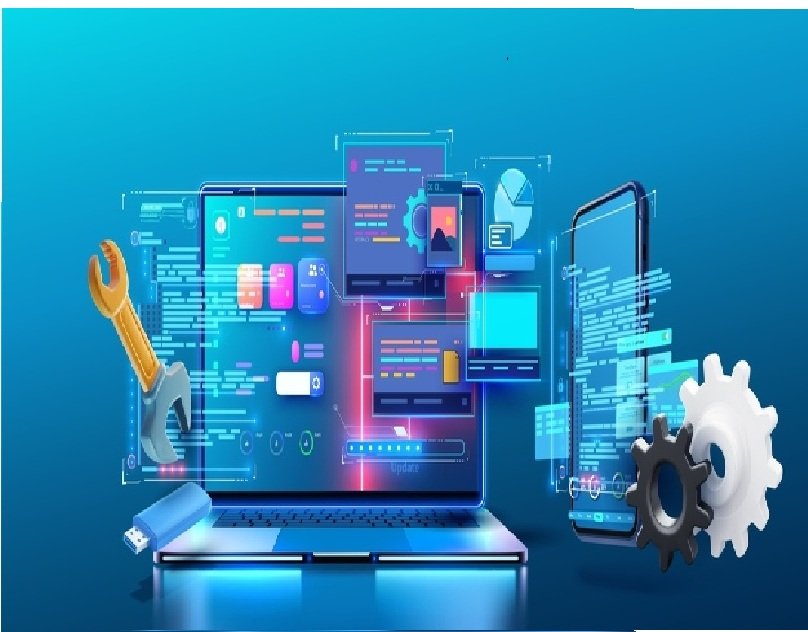Introduction
In the evolving landscape of healthcare technology, healthcare CRM software development has become a game-changer for medical institutions, hospitals, and healthcare providers. Customer Relationship Management (CRM) software helps streamline patient interactions, improve service quality, and enhance operational efficiency.
With advancements in artificial intelligence (AI), cloud computing, and big data analytics, healthcare CRM solutions are becoming more intelligent and patient-centric. This article explores the latest trends in healthcare CRM software development and best practices to ensure a successful implementation.
Key Trends in Healthcare CRM Software Development
1. AI and Automation for Personalized Patient Engagement
AI-driven CRM solutions are transforming patient interactions by automating tasks and providing personalized experiences. Features like chatbots, predictive analytics, and automated appointment scheduling help improve patient engagement while reducing administrative workload.
- AI-powered chatbots assist in answering patient queries instantly.
- Machine learning algorithms predict patient needs based on historical data.
- Automated reminders reduce appointment no-shows.
2. Cloud-Based CRM for Scalability and Accessibility
Cloud-based healthcare CRM solutions are gaining traction due to their cost-effectiveness, scalability, and remote accessibility. Cloud hosting allows healthcare providers to store and access patient data securely from any location, ensuring seamless collaboration between medical professionals.
- Cloud-based systems ensure real-time data access for healthcare teams.
- Enhanced security features protect sensitive patient information.
- Integration with telemedicine platforms enables remote patient care.
3. Integration with Electronic Health Records (EHR) and Telemedicine
Modern healthcare CRM software development focuses on seamless integration with EHR and telemedicine platforms. This integration allows healthcare providers to have a holistic view of a patient’s medical history, ensuring better decision-making and treatment plans.
- CRM-EHR integration reduces data duplication and administrative errors.
- Telemedicine support allows virtual consultations within the CRM platform.
- Automated billing and claims processing improve financial management.
4. Data Security and HIPAA Compliance
With increasing cyber threats, healthcare CRM software must adhere to strict security protocols and regulatory standards such as HIPAA (Health Insurance Portability and Accountability Act) and GDPR (General Data Protection Regulation).
- End-to-end encryption protects sensitive patient data.
- Multi-factor authentication (MFA) enhances login security.
- Role-based access control ensures that only authorized personnel can access patient records.
5. Mobile-Optimized CRM for Enhanced Patient Experience
Mobile healthcare CRM applications enable physicians, nurses, and patients to access important data and communication tools from their smartphones. This enhances flexibility and improves patient satisfaction.
- Patients can schedule appointments and receive updates via mobile apps.
- Healthcare staff can access patient records on the go.
- Secure messaging features improve doctor-patient communication.
6. Predictive Analytics for Improved Patient Outcomes
Predictive analytics in healthcare CRM software helps providers identify at-risk patients, monitor chronic conditions, and recommend proactive treatment plans.
- AI-driven analytics provide insights into patient behavior and health trends.
- Healthcare organizations can predict patient admission rates and optimize resource allocation.
- Risk assessment tools help in early disease detection and prevention.
Best Practices for Healthcare CRM Software Development
1. Define Clear Objectives and Requirements
Before developing a healthcare CRM solution, it’s essential to define clear goals. Whether the focus is on patient engagement, workflow automation, or data management, aligning the software’s features with organizational needs ensures a successful implementation.
- Identify key functionalities such as patient scheduling, reporting, and automated workflows.
- Ensure the CRM meets the specific needs of hospitals, clinics, or private practices.
- Gather input from healthcare professionals to refine feature requirements.
2. Prioritize Compliance and Data Security
Given the sensitive nature of healthcare data, developers must ensure that CRM software complies with regulations like HIPAA, GDPR, and HL7 (Health Level Seven).
- Implement encryption protocols for data security.
- Maintain an audit trail to track access and modifications.
- Ensure compliance with global and regional healthcare data protection laws.
3. Focus on User-Friendly Interface and Experience
A well-designed healthcare CRM software development project should prioritize usability. Physicians, nurses, and administrative staff should be able to navigate the system efficiently without extensive training.
- Design intuitive dashboards with clear navigation.
- Offer customizable templates for different healthcare workflows.
- Provide role-based access to ensure the right people have access to relevant information.
4. Ensure Seamless Integration with Existing Systems
For a healthcare CRM to be effective, it should integrate with existing healthcare management software, including EHR, telemedicine platforms, billing systems, and third-party APIs.
- API-based integration ensures smooth data flow across systems.
- Synchronization with scheduling software helps manage patient appointments efficiently.
- Unified databases prevent redundant data entry and inconsistencies.
5. Implement AI-Driven Automation for Efficiency
Automation enhances the functionality of a healthcare CRM, allowing medical professionals to focus on patient care rather than administrative tasks.
- AI chatbots assist in answering patient inquiries.
- Automated email/SMS reminders reduce missed appointments.
- Workflow automation speeds up claims processing and insurance verification.
6. Enable Multi-Device Compatibility
A robust healthcare CRM should be accessible across multiple devices, including desktops, tablets, and smartphones. This improves efficiency and enhances collaboration among healthcare teams.
- Develop a responsive web application for browser access.
- Ensure mobile app compatibility with iOS and Android devices.
- Optimize CRM performance for different screen sizes and devices.
7. Offer Training and Continuous Support
Successful healthcare CRM software development doesn’t end at deployment. Providing training and technical support ensures smooth adoption by healthcare staff.
- Conduct onboarding sessions for new users.
- Provide a knowledge base or chatbot for troubleshooting.
- Offer 24/7 support to resolve technical issues promptly.
Conclusion
Healthcare CRM software development is revolutionizing patient management, improving operational efficiency, and enhancing the overall healthcare experience. With trends like AI-powered automation, cloud integration, predictive analytics, and data security, healthcare CRM solutions are becoming more intelligent and patient-focused.
By following best practices such as ensuring regulatory compliance, prioritizing user experience, integrating with EHR systems, and leveraging automation, organizations can successfully develop and implement a powerful healthcare CRM solution.
As the healthcare industry continues to embrace digital transformation, investing in an advanced CRM system is crucial for delivering quality care and optimizing patient interactions.



